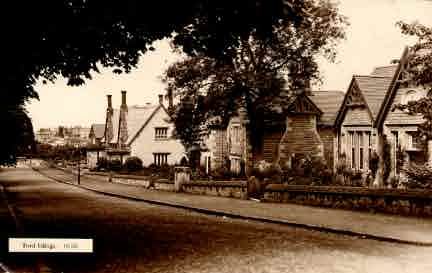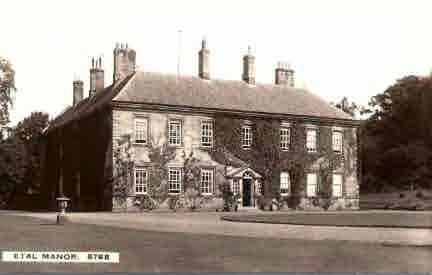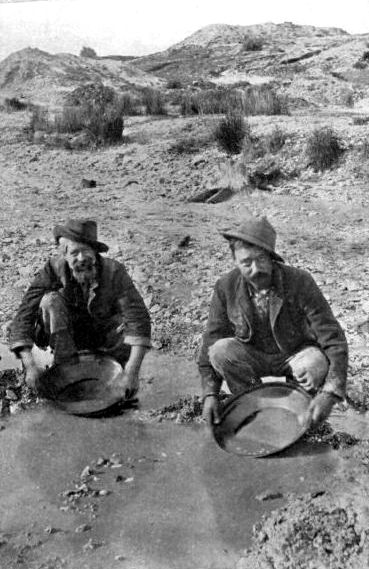BERWICK JOURNAL, 21ST JUNE 1923
DEATH OF JOHN DICKSON
The death took place on Friday night at his residence in West End, Tweedmouth, of Mr John Dickson, a native of Edinburgh, but a resident of Tweedmouth for 23 years. Deceased, a butcher to trade, was an ex-Cameron Highlander, before coming to Berwick, and was engaged for some years with an imported meat firm in High Street, Berwick. When war broke out in 1914 he joined the KOSB.’s straight away on the 9th of August, and was soon on the Western Front, taking part in many important engagements, as he also did in Russia before the termination of the loop drawn out campaign. He was once gassed, and on another occasion had both feet frozen, and used to think even with these troubles, that he had come through the great ordeal very fortunate compared to thousands of others. Since demobilisation he has been less fortunate in keeping himself in regular employment, and at one time signed on to go with the Government War Graves Department, where bodies were being exhumed on the open battlefields and decently interred in specially prepared cemeteries, where it is now possible for relatives of deceased to go and find the graves of their dear ones. Mr Dickson was there 12 months, the full period of his engagement. He also served for some time at the KOSB. Depot in the Barracks, cutting and distributing meat rations to the soldiers. Latterly he found employment with the L. and N.E.R. Coy. at Tweedmouth, as a mason’s labourer, but with many others was discharged some time ago under the plea of economy, and redundancy of staff. Although only in his 44th year he has had a very chequered career, but proved himself a straight Britisher all through, willing to fight for the Empire, or work for an honest living whenever opportunities presented themselves either way, but like so many of our ex-service me, the privilege to work was often denied him. He was married to the 3rd daughter of the late Wm. Dryden, West End, Tweedmouth, the famous oarsman who rowed at Tweedmouth Feast Regatta for 50 years and was presented with a beautiful clock from the late Ald. Robt. Marshall, to commemorate his Jubilee as an oarsman on the Tweed. For some time past he has been in failing health, and seven weeks ago he took to bed, and never again rallied, death taking place as stated above on Friday night last from heart failure. Deceased was interred on Monday afternoon in Tweedmouth Cemetery, with full military honours. A detachment of KOSB from the Depot were present, comprising firing party, pall bearers, pipers and following party, while the coffin was covered with the Union Jack. There was also a large following of the general public, amongst them being many ex-service men. Amongst the relatives were deceased’s father, brother and sister, from Edinburgh, Mr Robt. Lowe, Mr John. Murray (Brothers-in-law), Mr Wm. Murray (East Ord), Mr Wm. Murray, jun., Mr John Murray, jun., Mr John Brigham carried out the duties of undertaker; while Rev, P. G. Peacocke, Vicar, officiated at the burial. Deceased leaves behind a widow and family of 5, 2 of whom are still at school; and to the bereaved ones we now tender our sincere sympathy in their sad loss.
BERWICK BARRACKS ACCIDENT
WELL-KNOWN INSTRUCTOR INJURED
On Tuesday, while C.S.M. Brisbane, K.O.S.B., was instructing recruits in the Gymnasium at Berwick Barracks, and was demonstrating the back heel kick from a high bar, he slipped and fell to the ground, landing on his head. He was rendered unconscious for some time. The medical Officer examined him, and it is
satisfactory to learn that no bones are broken. It will be some time before C.S.M. Brisbane is out and about again. He came from the 2nd Batt. To the Depot in April, 1922, and is a fine soldier. He id well-known golfer on Berwick Town Course. We wish for him speedy and complete recovery.
TWEEDMOUTH GETS MORE HOUSES
Good progress is now being made with the erection of the new houses on the site at the top of Sunnyside, Tweedmouth, on Berwick and Scremerston-road. The scheme, which originated with Capt. J. Evelyn Carr, is designed to augment the housing facilities in the Borough, by private enterprise. A site, capable of accommodating 8 houses, has been purchased, and 2 houses are at present being erected, and will be ready at an early date.
The accommodation of the houses is: Living room, scullery, pantry, coal house, bathroom, and 3 bedrooms. Each house has a veranda and is fitted with hot and cold water. The living room is 16 feet by 12 feet 6 ins. The houses are made of rock faced blockers to the sill course and rough cast above. They have a coronet projecting over the eaves, and the roofs are tiled.
The view the site commands is an admirable one, and will, it is expected, appeal both to Berwick people and workers at Scremerston. All the fittings in the houses will be of the latest design, and everything is planned out for the convenience of the housewife.
The houses will be of the non-parlour type and, we understand, will qualify for the Government subsidy. If that is the case they will be cheap houses for the purchasers
Contractors for the scheme are: Builders, Messrs P. Whitlie and Sons; plasterer, Mr D. Watson; plumber, Mr Staple; painter, Mr Little. Messrs Patterson and Gray are the architects.
SAM LEWIS AND MR LAMBETON
SAM LEWIS
Sam Lewis, the great money-lender, once did a very considerate thing for Hon. Geo. Lambton- he had him arrested and lodged for 24 hours in Holloway Gaol. Mr Lambton naturally did not at the time realise the act was prompted by a friendly spirit. But 2 years later he learned the motive. Rather against his inclination he had been going to Canada to start a new course of life, and Lewis, his principal creditor, on learning this, had him stopped at Liverpool, and made it a condition of his release that he should promise not to leave England. Thus Mr Lambton was restored to a racing career- to the subsequent gratification of all lovers.
MR LAMBTON
Mr Lambton, who is brother of Hon. F. W. Lambton, Fenton, Wooler, tells what Mr Lewis, and “Why he had Me Arrested,” Mr Lambton says – Mr Lewis played very important part in my life, as one action of his probably altered the whole course of it. At last, the time had come when I was stone broke with no money left. No man was ever so fortunate in an elder brother as I was , but there was a limit even to his endurance, and after having saved me many times in my financial difficulties he arranged that I should go out to Canada, where my uncle, Lord Lansdowne, was Governor-General, as a member of his staff, so that my affairs could be straightened out and myself settled down to a more useful life. On the afternoon of my departure for Liverpool to join the boat I was arrested and taken to Holloway Gaol in the suit of Mr Lewis, who was my principal creditor, under the law of “Ne exeat regno.” After 24 hours I was released on giving my word that I would not leave England, so my Canadian trip was knocked on the head. At the time I was greatly surprised at Lewis’s action and thought he had behaved badly, and it was not till 2 years later that he told me the true history of the affair.
It was this on hearing the rumour that I was being sent to Canada he went to Marcus Beresford (a member of Waterford Family, who once owned Ford Castle, Berwick), who was a great friend of mine, and asked him if it was true and also if I really wanted to go myself. Marcus said yes, but that I hated the idea of leaving England, and that in his opinion I was quite unsuited to the life that I was intended to lead there, so Sam said, “Well, I shall stop him going, but it must be a secret between us two,” and until Sam told Marcus never breathed a word to me.








